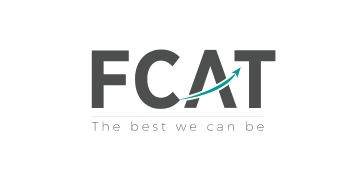The government has today confirmed it will scrap the inspection exemption for ‘outstanding’ schools – with new plans for Ofsted to rate schools on their financial health.
In a series of announcements this morning centred on school improvement, the government also pledged to set up a specialist academy trust to takeover the schools no-one wants and expand Lord Agnew’s cost-cutters’ initiative. Here’s what we know:
1. Michael Gove’s ‘outstanding’ exemption is gone
As expected, the exemption from inspection for ‘outstanding’ schools, introduced by former education secretary Michael Gove in 2011, has been dropped. There will be a consultation published “shortly” and, subject to parliamentary approval, it will be removed by September next year.
The government said the move would ensure parents are “confident their children’s schools are continuing to deliver the best education”. A previous Schools Week investigation revealed that more than 100 schools had been ignored by Ofsted for over a decade.
Inspectors are being spread too thinly which results in dubious judgments
Ofsted has been pushing for this for ages, so unsurprisingly, they are happy about it. What we don’t know, and what Ofsted will be concerned about amid big budget cuts, is whether they will get extra cash to do more inspections.
Nick Brook, deputy general secretary of the National Association of Head Teachers, said removing the exemption was the “right thing to do” but said he was “concerned that Ofsted does not have the capacity and capability to deliver the new expectations being placed on them” with “resources stretched”.
“Inspectors are being spread too thinly which results in dubious judgements and unreliable reporting.”
2. Ofsted to give schools financial rating – but still in planning stage
A less-expected announcement today was that the government will work with Ofsted to ensure all inspection reports also include a “rating for financial management and oversight” within the school, academy or academy trust. This is to ensure “best practice is shared across the sector”, number 10 said.
Schools Week has been told this is a “longer piece of work” and is not part of the watchdog’s new inspection framework, which kicks in this week.
An Ofsted spokesperson said they will work with the government on “our shared and important long-term aim to improve financial management in schools, including through inspection”.
“With MATs increasingly making many of the important decisions that affect children’s education, we have also been calling for inspection powers in MATs.”
But Brook said the new financial oversight rating, on the “day the new inspection framework comes into effect – is both extraordinary and misguided”.
“Ofsted is incapable of making robust judgements in this area. To do so would require considerable retraining of the inspection workforce and would result in even less time performing their core function – judging the quality of education provided by the school.”
3. There’s going to be more Agnew cost-cutters
The announcement above aligns with recent efforts from the government, under its school resource management advisor (SMRA) scheme, to ensure schools aren’t wasting a penny.
So it’s no surprise today’s announcement includes a pledge to expand the SMRA programme.
Number 10 said this would “ensure extra funding provided to schools is focussed on delivering better outcomes for pupils, reduces wasteful expenditure and improves efficiency”.
What we don’t know yet is the detail. Schools Week revealed earlier this year that schools handed repairs cash must now sign up to a cost-cutter visit (and are expected to implement their recommendations), but we don’t know if the announcement refers to this – or a wider rolling out into ALL government grants.
4. ‘Bad bank’ academy trust for SNOWs
A new academy trust specifically to take on the schools no-one wants will be piloted in the north of England. The government said this will be run by school leaders with a “proven track record of turning around underperforming schools”.
The trust will be “expected” to take on the “most challenging schools” by “offering a route into a strong academy trust that allows school improvement to begin immediately”.
This has been (neatly) coined as a “bad bank” by the Guardian (akin to the government setting up an institution to isolate high risk assets held by a bank).
Previous Schools Week investigations have revealed some of the schools stuck in limbo without a sponsor for the longest are down to unresolved legal issues blocking conversions – mostly to do with the pesky PFI (including one school now waiting EIGHT years!!!)
So it’s unclear how the new trust will resolve these issues, nor whether it will just be given extra cash to takeover such schools.
5. New ‘leadership support programme’ for ‘stuck’ schools
This is aimed at schools that have not been “good” in over a decade, with number 10 stating “hundreds” of them will now get more help from experienced school leaders and “evidence-based support programmes”.
The government has already consulted on plans to offer schools with two RI judgments more “intensive support”, so we’re assuming it feeds into this.
They government also pledged to “build on” the recently-announced £17 million growth fund for academy trusts.
Education secretary Gavin Williamson said he was “determined to make sure those schools that are leading the way are sharing their expertise and lifting up others so every child, no matter where they are from has the best possible start in life”.








The ‘bad bank academy trust’ is the most interesting, and unexpected, announcement above. The point about SNOWs though, as pointed out above, is that in most cases it’s not that academy trusts don’t want to take the schools on, it’s that they would come with such a financial millstone (crumbling buildings, asbestos, financial deficit, PFI etc.) that they can’t afford to take them on.
If you have an academy trust where the vast majority of schools come into the trust with these financial problems, then the only way it can work is for the Government to pump extra money into the trust. But if this is going to be the approach, why not put the money into the SNOW in the first place – making it a school which can be taken on by other trusts?
The typical example is a school in Special Measures which needs £1 million spent on its infrastructure to make it legally compliant. (Note this isn’t to give it bells and whistles, this is just to bring it to a standard where those running the school aren’t breaking the law.) An academy trust generally can’t take this on, as it would in effect be taking £1 million away from the schools already in the trust. If the £1 million is spent on the necessary works at the school (whether that comes from the LA, the DfE or elsewhere) then lo-and-behold the question becomes “who is best placed to take on this school and improve its educational outcomes” rather than “who can afford to spend £1 million”.
All of these issues were current and apparent ten years ago, when Gove forced academisation onto a national school improvement programme (via the NCSL, of which I was a part), that was just beginning to bear fruit in terms of regional co-operation and co-ordination. But the government wasn’t listening then and it isn’t listening now. Too many of my colleagues saw the promised £££££ signs and the opportunities for ego- inflating local power games and went along for the ride. Hence the mess we’re in now, with greed and corruption rampant across the sector and the life-chances of our most vulnerable children in the toughest areas sacrificed in the process . And the same empty promises and naked bribes are being deployed again, with likely the same results. A National Education Service, anyone?
As Mark says above, if ‘bad bank’ money is needed to persuade academy trusts to take over SNOWS, why not give the cash injection to the school in the first place especially if the school’s SNOW status is caused by PFI?
Successive governments have given money to trusts to take over other schools on the grounds the trusts had a proven track record of turning round schools. But this isn’t always the case. When Nicky Morgan splashed money up North she chose Bright Tribe and WCAT, now notorious, to receive grants to set up academy hubs. A third beneficiary of Morgan’s bounty was Reach4 which didn’t even exist at the time, A fourth was Tauheedul (now Star), which did have a successful record with its Muslim schools.. But it had no experience of taking on a failing school when it took over the non-faith Highfield Humanities College, now Highfield Leadership Academy. It’s taken on more such schools and opened free schools but has since been warned it may have funding for Highfield terminated after the academy was judged inadequate in December 2018.
Allowing a trust to open so many free schools as well as taking on schools with serious problems is perhaps expecting too much.
And there’s the rub. Encouraging trusts to take on more schools even if they have a proven track record risks setting them up to fail.